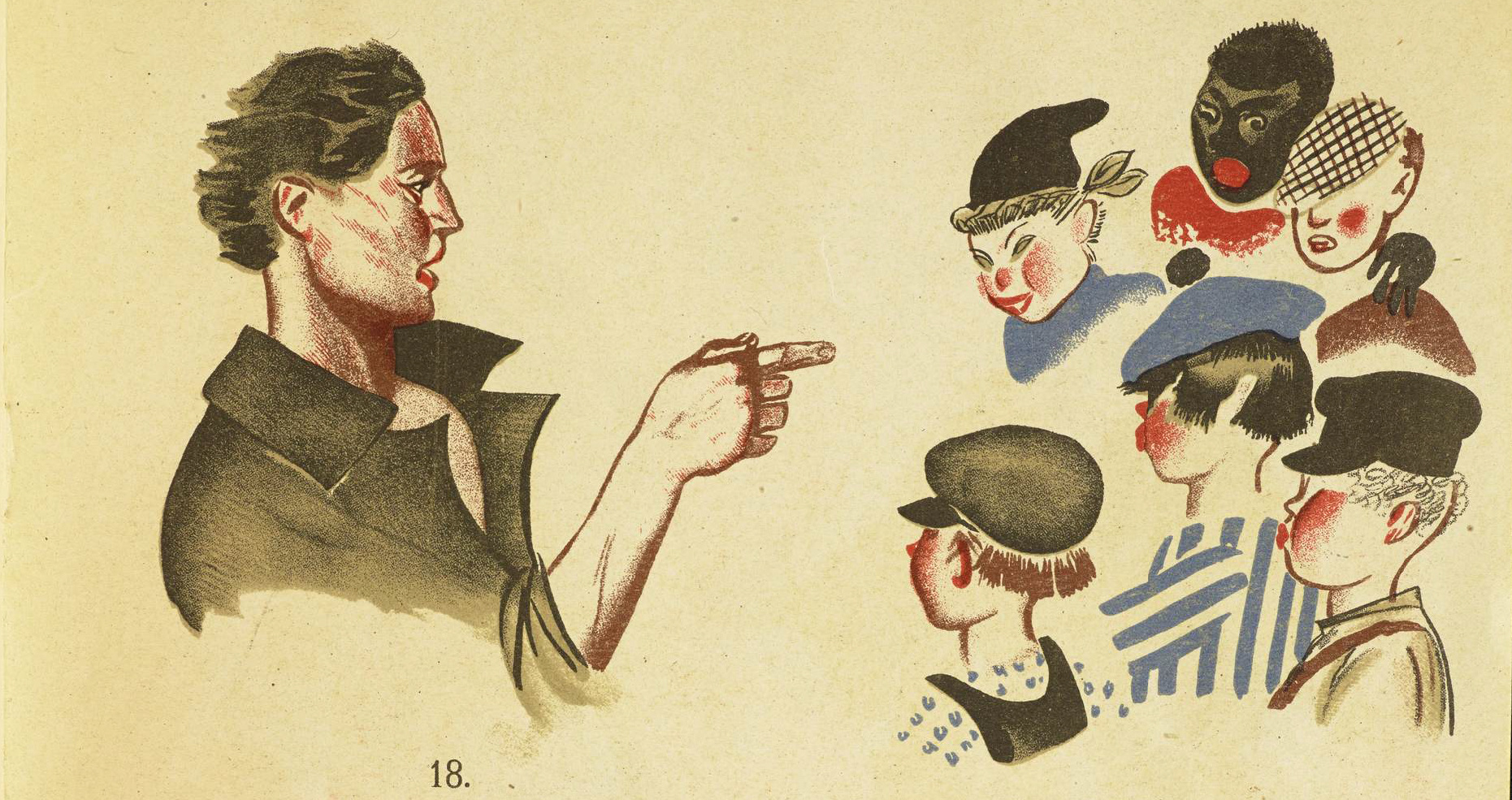 In 1938 Andrei Platonov wrote a strange short story for children. The plot is rather rudimentary: nine-year-old Natasha and her four-year-old brother Antoshka embark on a journey to a neighboring village to see their grandmother. The children suddenly leave the grandmother’s house after spending only a few moments there and get caught by a thunderstorm in a rye field on the way back. An old man runs into them and brings them back to their parental home.
In 1938 Andrei Platonov wrote a strange short story for children. The plot is rather rudimentary: nine-year-old Natasha and her four-year-old brother Antoshka embark on a journey to a neighboring village to see their grandmother. The children suddenly leave the grandmother’s house after spending only a few moments there and get caught by a thunderstorm in a rye field on the way back. An old man runs into them and brings them back to their parental home.
Three heavily abridged versions of the story were published in Literaturnaia gazeta (1938), Oktiabr’ (1938) and as an illustrated book for children (1940). Remarkably, the editors of all three versions remove an extravagant passage, which constitutes an impressive case of ekphrasis. In one of the extraordinary episodes, Natasha explores a wall of paper clippings and images in her grandmother’s hut and her attention is grabbed by one particular image:
Одна картинка изображала дедушку, он был снят на карточке. Дедушка был молодым, с черными усами, в брюках, в жилетке, с цепочкой часов на груди, волосы на его голове были гладкие, как облизанные, и он был весь как богатый или городской, или как тракторист осенью, и глаза дедушки смотрели задумчиво вдаль, по-умному… Дедушка сидел на голой высокой скамейке, сделанной из кирпичей или камня, как памятник; одна нога дедушки доставала до земли, а другая нет, и он сидел неохотно, как будто нечаянно, не замечая вовсе, что на земле возле него валяется гитара, повязанная бантом. Позади дедушки росла роща, и в той роще был еще белый до
м, красивый и большой, как Дворец пионеров, но дедушка не смотрел на него. Он поднял одну свою руку, в которой был револьвер, приставил револьвер к голове и держал его там, готовясь убиться, а другая его рука была положена на колено, где находился конверт с письмом, глаза же дедушки смотрели вперед хотя и задумчиво, но весело. Что ж это такое? Наташа еще не знала такой жизни у больших людей…
One picture depicted granddad, he was captured on a card. Granddad was young, with a black moustache, wearing trousers and a vest, with a pocket watch chain on his chest, the hair on his head was smooth, as if licked, and the whole of him was rich, or urban, or like a tractor-driver in fall, and granddad’s eyes were looking pensively off into the distance, shrewdly… Granddad was sitting on a bare high bench, made of bricks or stone, like a monument; one of his legs reached the ground, and the other didn’t, and he was sitting reluctantly, kind of inadvertently, not noticing that a guitar, tied with a bow, was lying by him. Behind granddad there grew a grove, and in that grove was also a white house, beautiful and big, like a Pioneer Palace, but granddad wasn’t looking at it. He raised one hand, that had a revolver in it, put it to his head and held it there, preparing to kill himself, while his other hand was placed on his knee, where there was an envelope with a letter. Granddad’s eyes were looking ahead jovially, though pensively. What could it be? Natasha did not yet know this kind of big people’s life…
The editors leave marks, such as “these are not a child’s thoughts,” on margins of the typescript but Platonov laconically defends himself: “necessary,” “I ask to leave it as it is.” The year of 1938 was a crucial year for Platonov, who was pushed to the margins of the Soviet literary process, and children’s literature evolved into a promising avenue, a possible survival space. In the same year he published a review of Aleksandr Grin’s Scarlet Sails in which he criticizes Grin’s use of the “grand poetic energy” in order to veil the “artistic and ethical truth.” Platonov concludes: “Но было бы гораздо лучше, если бы поэтическая сила Грина была применена для изображения реального мира, а не сновидения, для создания искусства, а не искусственности.”
Platonov’s comment reflects a key problem of the period—the problem of realism and reality. Literaturnyi kritik (Usievich) and Literaturnaia gazeta (Ermilov) take on the issue of whether art should be a mere illustration or present reality in its complexity. Illustration is a key category, it is derogative.
The irony is that Platonov’s real and strange world is pushed to the realm of the imaginary by the overly diligent editors. The photograph in ‘July Thunderstorm,’ which depicts a man trying to or pretending to commit suicide, remains, in its real and extraordinary glory, detained in the realm of the imaginary. But the description of the strange photo in the original version counterbalances the normalizing illustrations of the abridged short story in the 1940 book version accomplished by I. Kuznetsov.

